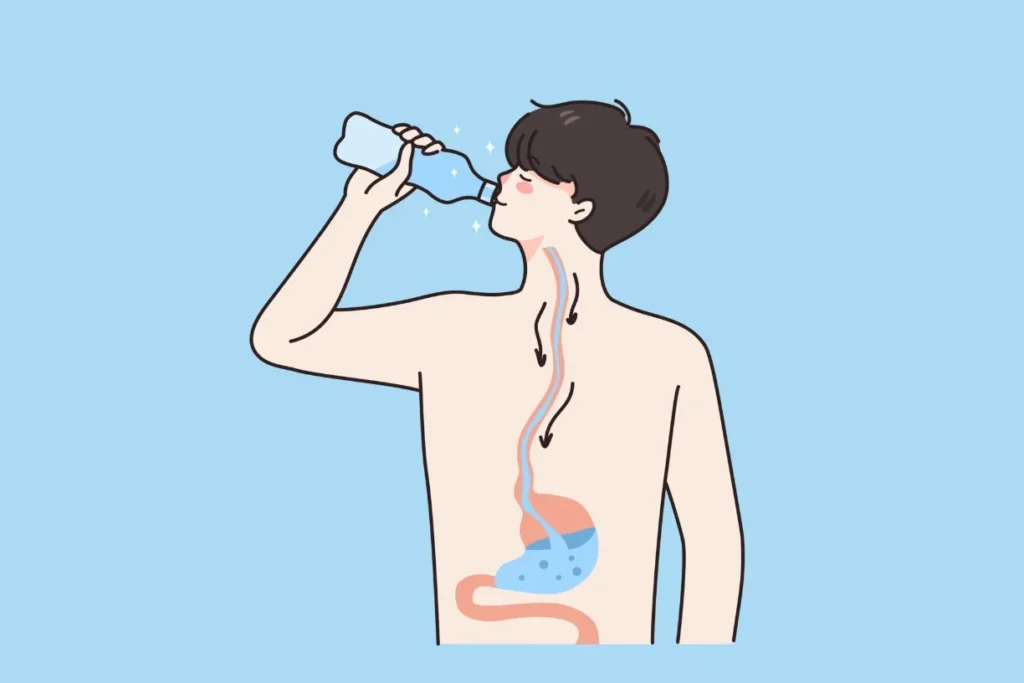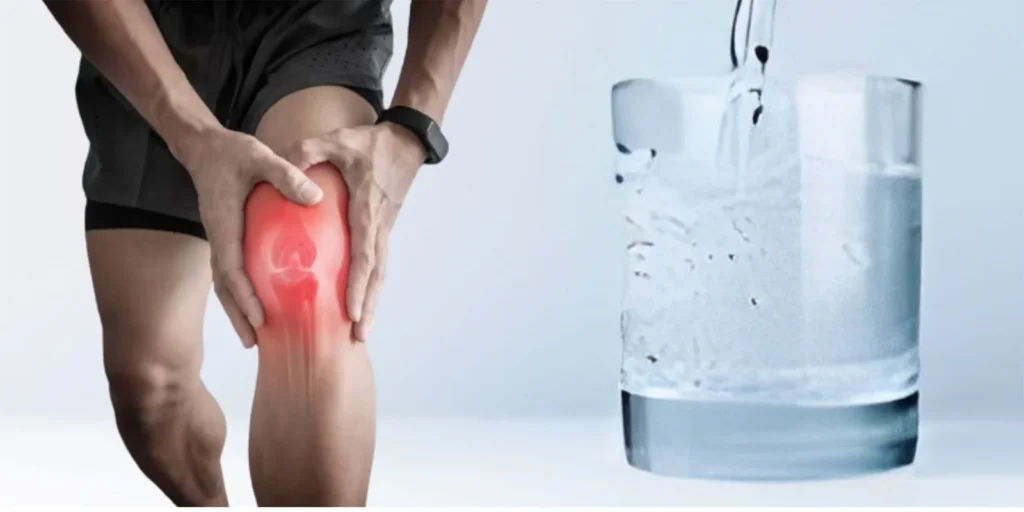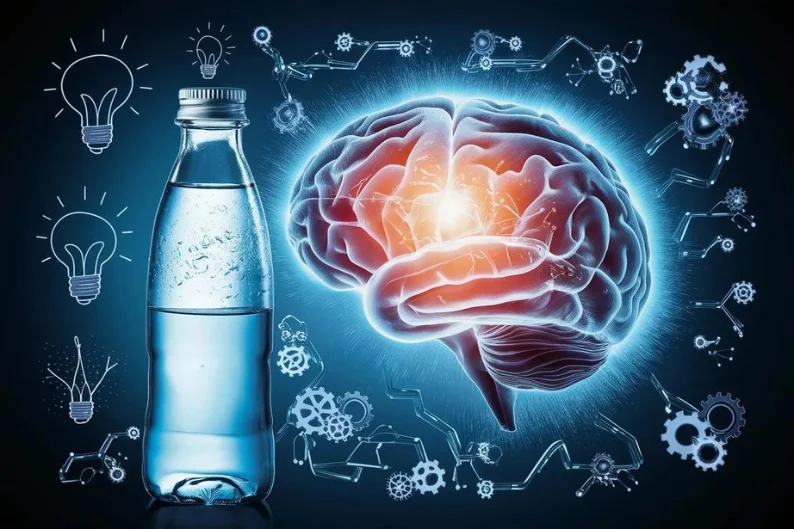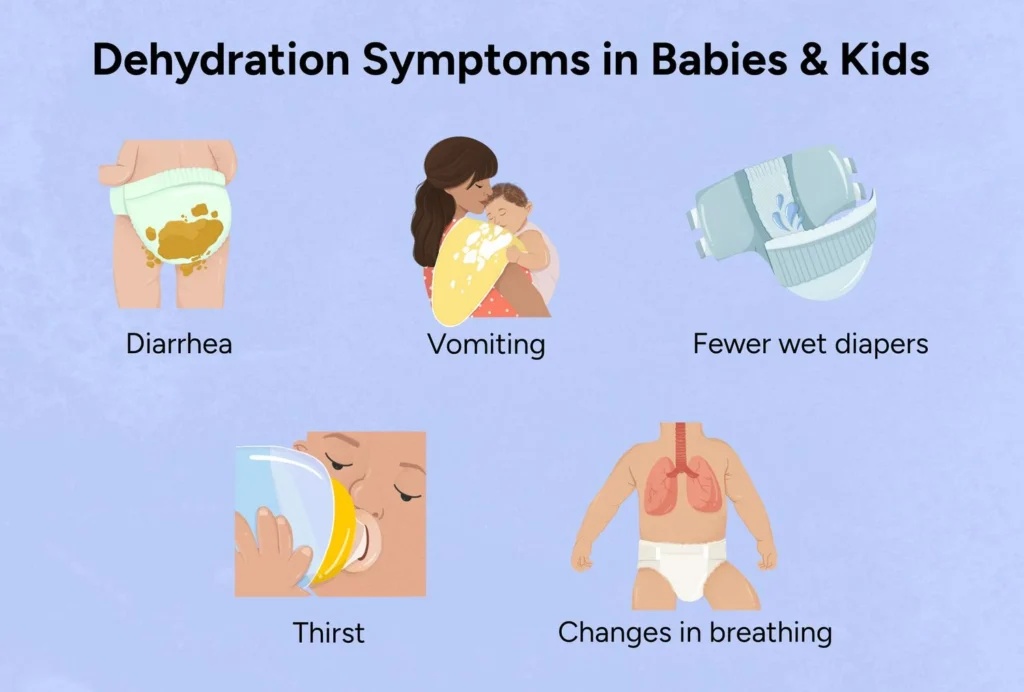The Importance of Hydration: How Much Water Should You Drink?

Staying hydrated is crucial for optimal health and well-being. Water plays a vital role in numerous bodily functions, from regulating temperature to aiding digestion. However, many people underestimate the importance of drinking enough water. In this blog post, we’ll explore the significance of hydration and provide practical guidelines on how much water you should consume daily.
Why Hydration Matters?

1. Regulates Body Temperature:
Water is essential for maintaining a stable body temperature. It does this primarily through two mechanisms:
• Evaporation: When sweat evaporates from the skin, it absorbs heat from the body, cooling it down. This process is particularly effective in hot environments.
• Heat Distribution: Water helps to distribute heat throughout the body. This prevents areas from becoming too hot or too cold, ensuring a balanced temperature.
By regulating body temperature, water helps to prevent heat-related illnesses like heatstroke and hypothermia. It’s crucial to stay hydrated, especially in hot weather or during intense physical activity.
2. Aids Digestion:

Water plays a crucial role in the digestive process. Here’s how it helps:
• Lubrication: Water helps to soften food, making it easier to swallow and digest.
• Enzyme Activation: Digestive enzymes, which break down food into smaller molecules, require water to function properly.
• Nutrient Absorption: Water is essential for the absorption of nutrients from the small intestine into the bloodstream.
• Waste Elimination: Water helps to soften stool, making it easier to pass.
• Stomach Acid Dilution: Water helps to dilute stomach acid, preventing damage to the stomach lining.
Adequate hydration is essential for a healthy digestive system.
Dehydration can lead to constipation, indigestion, and other digestive
problems.
3. Lubricates Joints:

Synovial fluid, a thick, viscous fluid found within joints, is essential for joint lubrication and protection. This fluid is primarily composed of water. Here’s how water helps lubricate joints:
• Reduces Friction: Synovial fluid acts as a lubricant, reducing friction between the bones in a joint. This helps to prevent wear and tear on the cartilage.
• Nourishes Cartilage: Water in synovial fluid helps to nourish the cartilage, keeping it healthy and strong.
• Shock Absorption: Synovial fluid acts as a shock absorber, protecting the joint from damage during movement.
Adequate hydration is crucial for maintaining healthy joint function. Dehydration can lead to decreased synovial fluid production, which can increase the risk of joint pain and stiffness.
4. Improves Skin Health:

Water is essential for maintaining healthy, glowing skin. Here’s how it helps:
• Hydration: Water helps to keep the skin hydrated, preventing dryness and flakiness.
• Plumping: Adequate hydration helps to plump the skin, reducing the appearance of fine lines and wrinkles.
• Improved Elasticity: Water helps to improve the skin’s elasticity, making it less prone to sagging.
• Waste Removal: Water helps to flush out toxins and waste products from the skin, promoting a healthy complexion.
• Oil Balance: Proper hydration can help to balance the skin’s oil production, reducing the risk of acne and other skin problems.
Staying hydrated is crucial for maintaining healthy skin. Drinking
enough water can help to improve your skin’s appearance and reduce the
signs of aging.
5. Supports Cognitive Function:

Water plays a crucial role in maintaining optimal cognitive function. Here’s how it helps:
• Brain Hydration: The brain is composed of approximately 75% water. Adequate hydration is essential for maintaining its proper functioning.
• Nutrient Delivery: Water helps to transport nutrients to the brain, providing the energy and building blocks it needs to function properly.
• Focus and Concentration: Adequate hydration is essential for maintaining focus and concentration. Dehydration can lead to fatigue, difficulty concentrating, and impaired memory.
By staying hydrated, you can help to improve your cognitive function,
enhance your memory, and boost your overall mental well-being
6. Muscle Marvel

Water plays a crucial role in maintaining healthy muscles and supporting optimal athletic performance. Here’s how:
• Hydration: Muscles require adequate hydration to function properly. Dehydration can lead to fatigue, muscle cramps, and reduced performance.
• Muscle Contraction: Water is essential for muscle contraction. Dehydration can impair muscle function and reduce strength and power.
• Muscle Growth and Repair: Adequate hydration is essential for muscle growth and repair after exercise.
7. Weight Watcher:

Water is often overlooked as a weight loss tool, but it plays a significant role in helping you shed those extra pounds. Here’s how:
• Appetite Suppression: Drinking water before meals can help you feel fuller, reducing your overall calorie intake.
• Metabolism Boost: Staying hydrated can help boost your metabolism, which can aid in weight loss.
• Detoxification: Water helps to flush out toxins from your body, which can contribute to weight gain.
How Much Water Should You Drink?
The old “8 glasses a day” rule is a good starting point, but your
individual needs may vary based on factors like your activity level,
climate, and overall health. A general guideline is to aim for at least half
your body weight in ounces of water daily. For example, if you weigh
150 pounds, try to drink around 75 ounces of water each day.
Signs of Dehydration

• Thirst: This is usually the first and most obvious sign of dehydration.
• Dry mouth and lips: Your mouth and lips may feel dry or sticky.
• Fatigue: Dehydration can lead to feelings of tiredness and fatigue.
• Headache: A headache is a common symptom of dehydration.
• Dizziness or lightheadedness: Dehydration can cause dizziness or lightheadedness, especially when you stand up quickly.
• Dark urine: Your urine may become darker in color when you’re dehydrated.
• Decreased urine output: You may urinate less frequently than usual.
• Muscle cramps: Dehydration can cause muscle cramps, especially in the legs.
• Sunken eyes: Your eyes may appear sunken or hollow.
• Dry skin: Your skin may feel dry and lackluster.
Tips for Staying Hydrated

Carry a Water Bottle: Keep a reusable water bottle with you throughout the day.
Flavor Your Water: Add slices of lemon, lime, or cucumber for a refreshing taste.
Eat Water-Rich Foods: Fruits and vegetables like watermelon, cucumber, and celery contain a significant amount of water.
Limit Sugary Drinks: Excessive intake of sugary beverages can lead to dehydration.
Listen to Your Body: Pay attention to your thirst signals and drink when you feel thirsty.
Conclusion
Hydration is a fundamental aspect of overall health. By ensuring you drink enough water each day, you can support your body’s functions, improve your energy levels, and enhance your well-being. Make hydration a priority and reap the benefits of a well-hydrated body.





